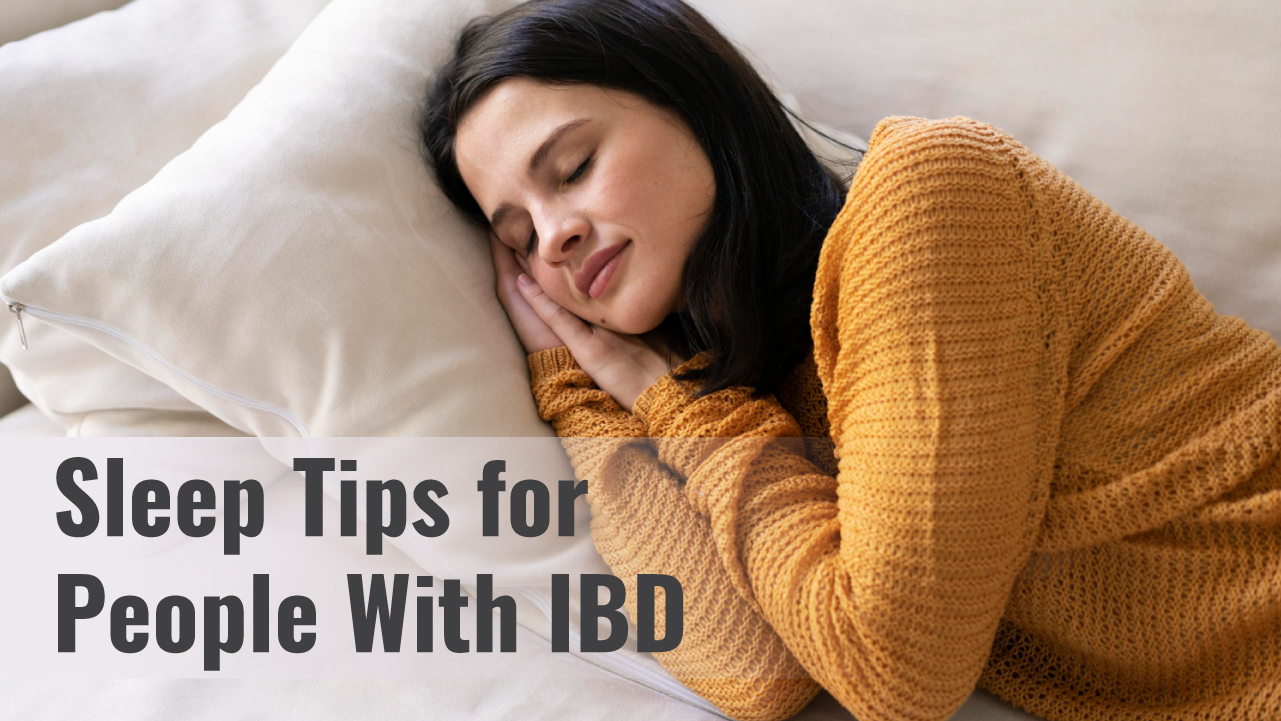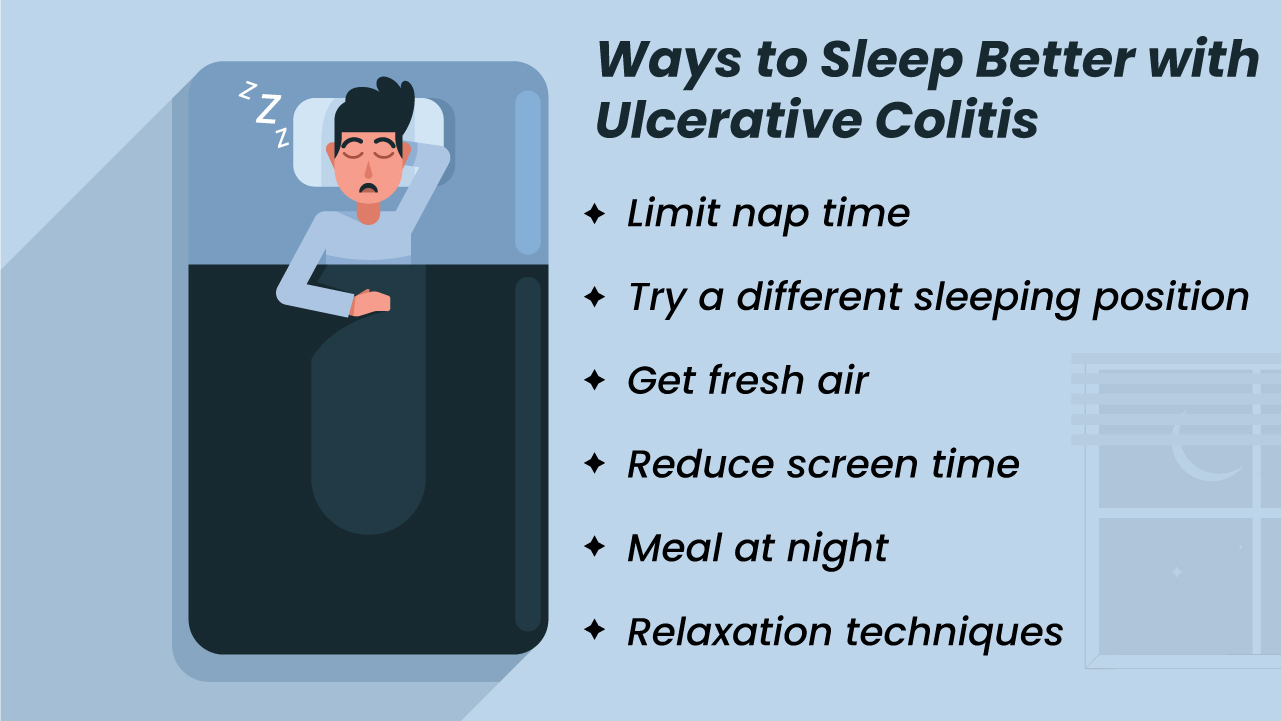
Are you counting sheep due to Ulcerative Colitis?
Has ulcerative colitis made it hard for you to sleep peacefully? Are you staying up late at night because of ulcerative colitis? It’s time to redesign your sleep schedule.
Every human needs adequate sleep so that our brain and body rest and the cells rejuvenate. Even for someone who is perfectly fit and healthy, sleep is important for mental and physical health. It is crucial to get enough sleep for everyone, with or without Ulcerative colitis. But for people with UC, sleep is one of the most important parts of the healing process.
Having an adequate sleeping pattern is important for people with ulcerative colitis, as the body is under constant damage due to low immunity. Disturbed sleeping patterns also activate the proinflammatory signals. Ulcerative Colitis symptoms such as abdominal pain and diarrhea might disrupt a peaceful night’s sleep. A disrupted sleeping pattern is also linked with inflammation damage and flare-ups. Other reasons include lack of sleep, pain, bloating, need to use the toilet, need to drink water, and anxiety.

Ways to Sleep Better with Ulcerative Colitis
Inadequate sleep is very common for ulcerative colitis patients. The combination of short and long sleep duration has an impact on their health.
1. Limit Nap Time
A short power nap is something that can help in rejuvenating and relaxing fatigue. Apart from this, short naps also increase mental alertness. But longer sleep duration can make you feel groggy and difficult to fall asleep at bedtime.
2. Try a different sleeping position
One might be comfortable in sleeping sideways, depending on which side of the colon is most affected. Even though it is advisable to sleep on your back as it might provide relief but then experiment with different sleeping positions to find what works for you.
3. Get Fresh Air
Even though certain artificial lights can impact sleep, getting natural light and air is the best for the natural circadian rhythm. Keeping the windows open before bedtime can allow ventilation and temperature control of the bedroom.
4. Reduce Screen Time
Cutting down the screen time before bed can help regulate the sleep cycle. The radiation from phones can suppress melatonin production, which is the hormone that regulates the circadian rhythm.
5. Meal At night
It is advisable to have a meal at least an hour before you go to sleep. Having a meal right before bedtime doesn’t give enough time for digestion. In such a case, a larger meal much earlier than bedtime is advisable. In case of a snack before bedtime, opt for easy-to-digest foods.
6. Relaxation Techniques
Stressing and anxiety before bed make the situation worse, for both sleep disruption and ulcerative colitis. Relaxation techniques like deep breathing, meditation, soothing music, or anything that helps to quiet the mind.
Other things that might help you in improvising the sleep pattern for Ulcerative Colitis
- Limit Caffeine intake
- Stop Smoking
- Avoid Alcohol
- Indulge into exercise
- Keep the bedroom quiet, cool, and dark
Final Words
Our body is constantly doing its best to preserve and improve the vital domain and repair, regenerate, rebalance, and optimize the functions of different parts. This healing force is vigorous and thorough, under favorable conditions, which is sound sleep. Amidst all the other complications, sound sleep is often overlooked. Following a good sleep schedule is one of the most critical parts of an overall healthy lifestyle.
Sleep is the most powerful healing remedy. This is why at High Carb Health we believe that sleep allows our innate power to take charge of the health restoration process. Our body only delays healing and prolongs suffering when attempting to “fix” or “treat” the body with modalities. The body heals not because of but despite interventions!
FAQ
- Why is ulcerative flare-up common at night?
The most common cause of stomach pain at night is digestive problems. Eating close to bedtime means the lack of proper stomach acid to travel back to the digestive tract.
- Can lack of sleep impact ulcerative colitis?
Yes. Sleep deprivation can cause the production of inflammatory cytokines, which is associated with an increase in ulcerative colitis flare-ups.
- Does sleep help in the Ulcerative Colitis healing process?
Studies show that the lack of sleep increases inflammation and also has an impact on mood and mental health.
